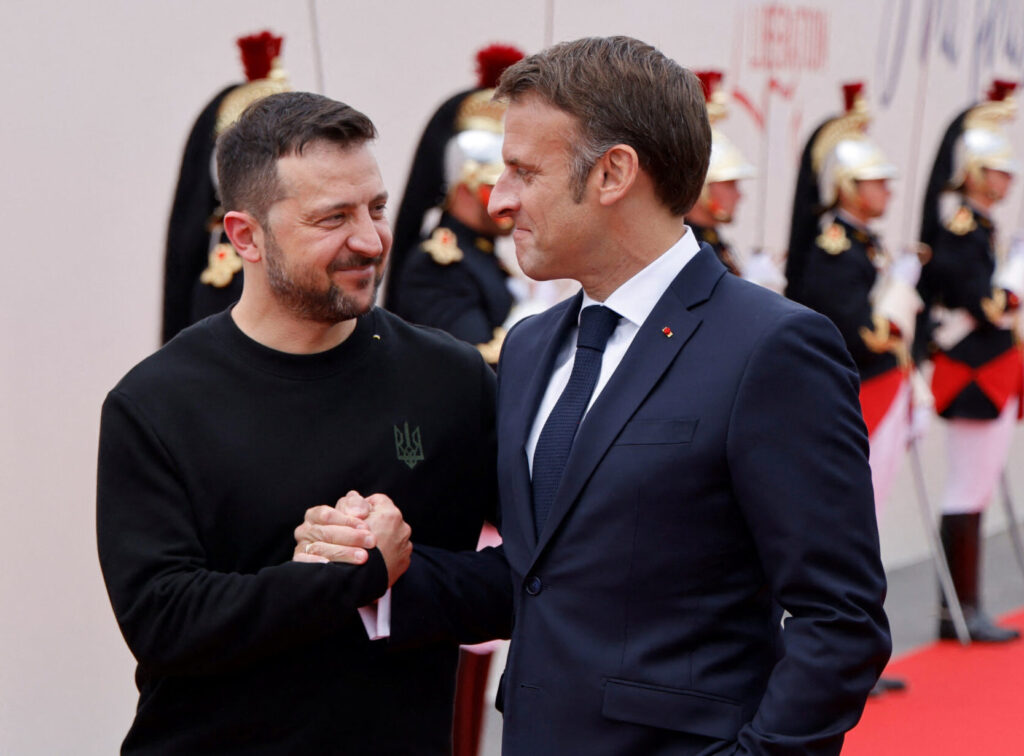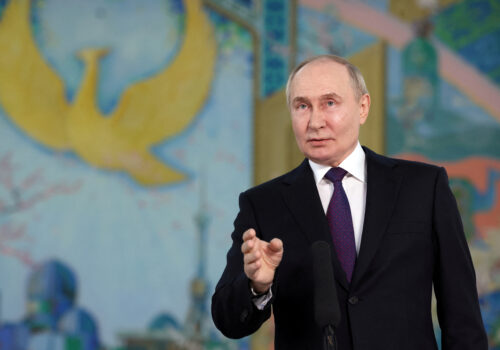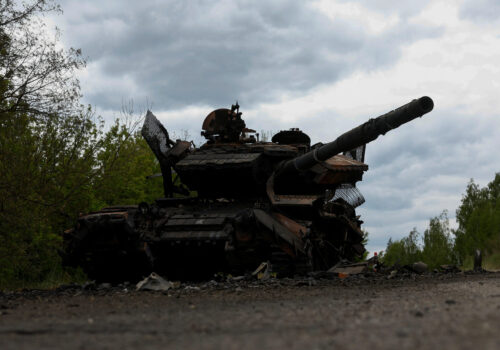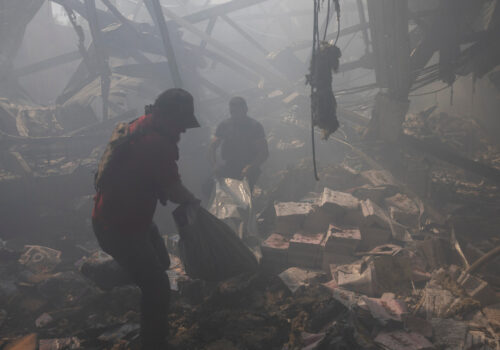World leaders gathered in Normandy on June 6 to mark the eightieth anniversary of the Allied landings in France during World War II. Russian President Vladimir Putin was not invited to attend, but the war he unleashed more than two years ago in Ukraine cast a long shadow over commemorations.
In his official address, French President Emmanuel Macron directly referenced the ongoing Russian invasion of Ukraine. “When we look at war coming back to our continent, when we look at people questioning the values for which we fought, when we look at those who want to change borders by force by rewriting history, let us stand with dignity and look at those who landed here. Let us have their courage,” he commented.
US President Joe Biden struck a similar note. In a speech to thousands of dignitaries and around 180 surviving veterans of the 1944 Normandy landings, Biden compared the current challenge of confronting Putin’s Russia with the threat Hitler’s Germany posed to an earlier generation. “We know the dark forces that these heroes fought eighty years ago. They never fade,” he said. “Aggression and greed, the desire to dominate and control, to change borders by force, these are perennial. The struggle between dictatorship and freedom is unending.”
Referring to Putin as a “tyrant bent on domination,” Biden used the anniversary to issue a rallying cry for Western unity in the fight against Russian aggression. This was accompanied by a stark warning of the grave consequences for the future of European security if Putin is not stopped in Ukraine. “We will not walk away,” Biden declared. “Because if we do, Ukraine will be subjugated and it will not end there.”
Stay updated
As the world watches the Russian invasion of Ukraine unfold, UkraineAlert delivers the best Atlantic Council expert insight and analysis on Ukraine twice a week directly to your inbox.
The presence of Ukrainian President Volodymyr Zelenskyy at anniversary events in France this week served as a timely reminder that eighty years since Allied troops stormed the beaches of Normandy, Europe is once again at war. Zelenskyy received a very warm welcome, including hearty cheers from the French public and praise from Macron. In one particularly touching exchange, the Ukrainian leader was greeted by a US veteran who told him, “You’re a savior of the people!” “No,” replied Zelenskyy, “You saved Europe. You are our heroes.”
This week’s D-Day anniversary comes as the Russian invasion of Ukraine enters a crucial phase. Russian troops currently hold the battlefield initiative and continue to advance, with a recently launched offensive in the north further stretching Ukraine’s already depleted forces. Meanwhile, a large-scale Russian bombing campaign targeting Ukraine’s civilian energy infrastructure has succeeded in damaging or destroying around half the country’s available power-generating capacity, leaving millions of Ukrainians without access to electricity for extended periods.
Eurasia Center events

Thursday’s gathering in Normandy marked the start of a particularly intensive period of Ukrainian diplomatic activity. A major Ukraine Recovery Conference will take place in Berlin on June 11-12. Zelenskyy is then expected to attend next week’s G7 summit in Italy, before traveling to neighboring Switzerland for a global peace summit that seeks to consolidate international backing for the Ukrainian leader’s peace plan.
Zelenskyy will be looking to use these meetings to underline the gravity of the current situation in Ukraine and push for more military support. Ukraine recently achieved a significant breakthrough in its quest to bring the war home to Russia, securing the green light from Kyiv’s international partners to use Western-supplied weapons for strikes on Russian territory. Nevertheless, the Ukrainian military is still outnumbered and outgunned, while a lack of sufficient air defenses means the country’s critical infrastructure remains extremely vulnerable to Russian attack.
The Ukrainian President’s star billing at one of the most important World War II commemorations in recent years will have been particularly galling for Vladimir Putin to witness. Throughout his reign, Putin has sought to position the Soviet World War II experience at the heart of modern Russia’s national identity, transforming it into a quasi-religious cult complete with its own sacred symbols, dogmas, feast days, and the ruthless suppression of heresy.
A key element of this cult is the routine denigration of all opponents as “Nazis.” For years, Kremlin propaganda has portrayed independent Ukraine as a “Nazi state,” despite the inconvenient fact that support for Ukrainian far-right political parties is among the lowest in Europe and the country’s president is Jewish. Predictably, when Putin announced the full-scale invasion of Ukraine in February 2022, he named “de-Nazification” as his key war aim.
Putin’s relentless attacks on “Nazi Ukraine” have helped strengthen pro-war sentiment inside Russia, but have largely failed to convince international audiences. Instead, as this week’s D-Day events illustrated, it is Putin himself who is widely seen as the greatest single threat to peace in Europe since the days of Adolf Hitler.
Peter Dickinson is editor of the Atlantic Council’s UkraineAlert service.
Further reading
The views expressed in UkraineAlert are solely those of the authors and do not necessarily reflect the views of the Atlantic Council, its staff, or its supporters.

The Eurasia Center’s mission is to enhance transatlantic cooperation in promoting stability, democratic values and prosperity in Eurasia, from Eastern Europe and Turkey in the West to the Caucasus, Russia and Central Asia in the East.
Follow us on social media
and support our work
Image: France's President Emmanuel Macron greets Ukraine's President Volodymyr Zelensky at the International commemorative ceremony at Omaha Beach marking the 80th anniversary of the World War II "D-Day" Allied landings in Normandy, in Saint-Laurent-sur-Mer, in northwestern France, on June 6, 2024. LUDOVIC MARIN/Pool via REUTERS




